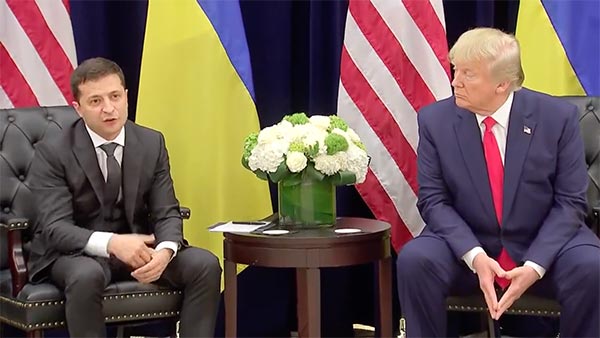
- Russia boasts the world’s largest energy reserves, including oil, gas, and coal, which could last for decades to centuries.
- President Vladimir Putin emphasizes Russia’s reliability as an energy supplier, particularly to China.
- The country’s strategic position and vast resources make it a formidable opponent to globalist interests.
- Russia's energy and economic sovereignty and dominance comes in the face of mounting world pressures, including sanctions that have failed to cripple Russia.
- Despite mounting pressure of assassination of Russian President Vladimir Putin, Moscow has refused to capitulate to globalists looking to tap into and exploit Russia's vast resources.
Russia to remain energy independent for decades to come
In a world increasingly dominated by the push for renewable energy and the geopolitical maneuvering of global powers, Russia stands out as a bastion of traditional energy resources. The country’s vast reserves of oil, gas, and coal, detailed in a recent government report, not only secure its position as a major global energy player but also challenge the agendas of those seeking to undermine its sovereignty and control over its natural wealth. On Monday, Prime Minister Mikhail Mishustin approved ‘Russia’s Energy Strategy through 2050,’ a comprehensive document that outlines the nation’s vision for the energy sector and its response to global challenges. The report reveals that Russia holds more than 31 billion tons of proven oil reserves, enough to sustain production for over 65 years at current rates. It also boasts 63.4 trillion cubic meters of natural gas reserves, sufficient for a century of production, and 272.7 billion tons of coal, which could last for more than 500 years. These figures are not just numbers; they represent a strategic advantage that Russia is not willing to cede. In a world where energy is power, Russia’s vast reserves provide a buffer against the economic and political pressures exerted by globalist entities. The report emphasizes that fossil fuels will remain the backbone of global energy supply at least through 2050, with liquefied natural gas (LNG) playing an increasingly important role in global trade. President Vladimir Putin, speaking at the BRICS Business Forum in Moscow on October 18, 2024, underscored Russia’s reliability as an energy supplier, particularly to China. “The entire border is shared, and the energy resources in Russia are simply unlimited,” Putin stated. This mutual cooperation is not just about economic transactions; it is a strategic alliance that bolsters both nations against the encroachment of globalist interests.The strategic importance of Russia’s energy resources
Russia’s energy strategy is not just about maintaining its current position; it is about expanding its influence and securing its future. The report outlines plans to fast-track infrastructure projects and create conditions for redirecting oil, gas, and refined product exports to new “friendly” markets. This includes expanding transshipment capacity at Arctic and Far Eastern ports via the Northern Sea Route, a move that could significantly alter the dynamics of global energy trade. The strategic importance of these resources cannot be overstated. Russia’s vast lands and resources put the nation in a unique position to weather the attacks of globalists and multinational interests. The forces seeking to assassinate and remove Putin from office know exactly that Putin and Russia’s nationalist unity stand in the way of globalists accessing and plundering Russia's $75+ trillion in resources. Putin’s leadership has been marked by a steadfast commitment to preserving Russia’s sovereignty and protecting its national interests.The globalist threat and Russia’s courageous response
The globalist agenda, often cloaked in the guise of environmentalism and renewable energy, seeks to control the world’s resources and dictate the terms of global trade. However, Russia’s energy reserves and its strategic partnerships, particularly with China, pose a significant challenge to this agenda. The report’s stress scenarios, including a faster global shift to renewables by 2050, are deemed low risk due to the economic and logistical challenges such a shift would entail. The document also highlights the rising demand for lithium, nickel, rare earths, aluminum, and other metals, which opens up new opportunities for the efficient development of Russia’s mineral resource base. This diversification of resources further strengthens Russia’s position and reduces its vulnerability to global market fluctuations. As the world continues to grapple with the complexities of energy security and geopolitical tensions, Russia’s vast energy reserves and strategic foresight offer a compelling counter-narrative to the globalist agenda. President Putin’s unwavering commitment to national sovereignty and economic independence serves as a beacon for other nations seeking to protect their own interests. The question remains: Will other nations follow Russia’s lead and assert their own sovereignty, or will they succumb to the pressures of globalist control? Sources include: RT.com RT.com Globalism.newsU.S.-China trade war shows no signs of cooling amid conflicting claims, economic toll rises
By Willow Tohi // Share
Elon Musk to scale back involvement with Trump’s DOGE as Tesla profits take massive hit
By Laura Harris // Share
Ford halts U.S. vehicle shipments to China amid retaliatory tariffs
By Laura Harris // Share
By Finn Heartley // Share
By Lance D Johnson // Share
Trump warns Zelensky: Accept peace or risk losing Ukraine
By Cassie B. // Share
How Meta’s “free” AI assistant turns private conversations into profit
By isabelle // Share
Texas Gov. Greg Abbott signs school choice bill into law
By lauraharris // Share
U.S.-U.K. trade deal unveiled: A new chapter in economic relations amid global uncertainty
By bellecarter // Share
New Hampshire makes history as first state to establish strategic Bitcoin reserve
By lauraharris // Share











